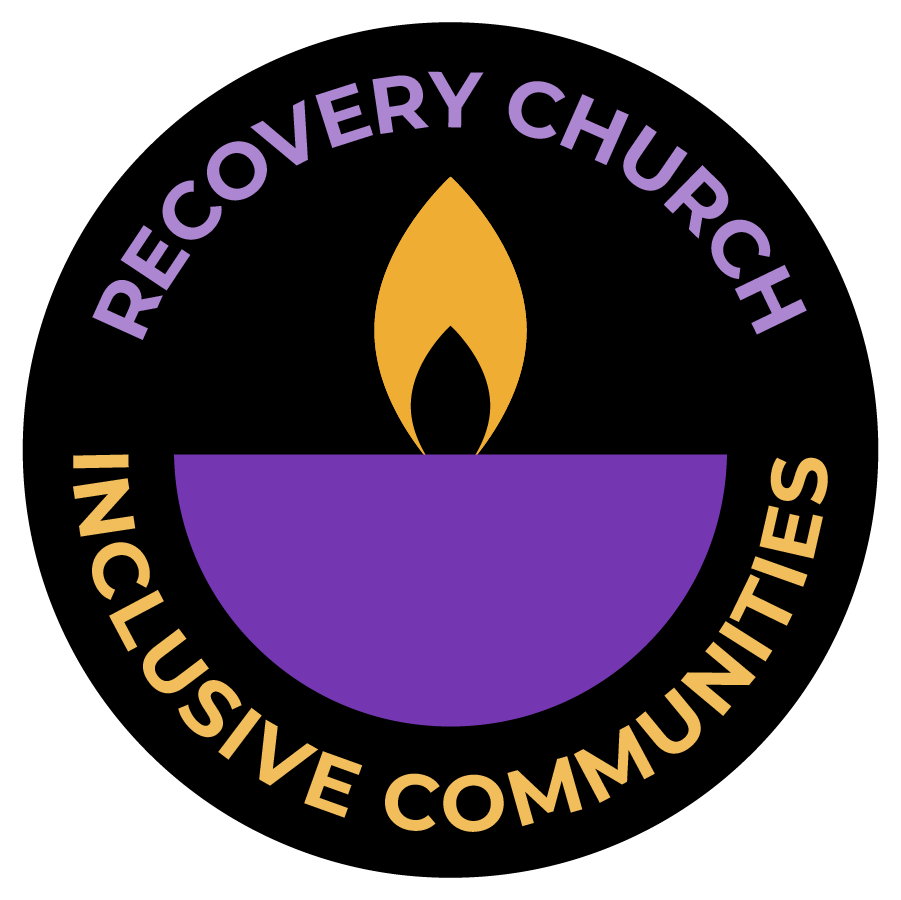History
The first Recovery Church Inclusive Community began in March 2020 at the beginning of the Covid Lockdown
Having found her way to the 12 Step rooms for her own addiction in 2019, Tracey was concerned about the lack of pastoral support available to people seeking recovery with addictions when churches and 12 Step groups were forced to close their doors due to the pandemic.
A weekly short service on Zoom was initiated using 12 Step prayers and a brief reflection with the intention of it meeting until the end of the lockdown. Five years later this virtual online community continues to grow and it continues to meet every Sunday evening on Zoom.
In April 2022 a second service was started at Newcastle Cathedral and a third began in 2023 in Strathclyde, Glasgow through the work of Rev’d Laurent Vernet and the Scotland Methodist District. There are now more communities that are beginning to develop within the UK.


The Team
Recovery Church is coordinated by two ministers who are both people in recovery from addiction.
Deacon Tracey Hume
Tracey is an ordained Deacon in the Methodist Church and serves in the Newcastle upon Tyne District as the Recovery Church Coordinator. Tracey also supports the development of new Recovery Church communities across the country through partnership with the Methodist Church.
Tracey can be contacted via email deacontraceyhume@gmail.com and mobile 07584 662564
Rev’d Jon Canessa
Jon is an ordained minister working for the Newcastle Upon Tyne Methodist District as Recovery Church Development Enabler. The main focus of Jon’s work is the development of Recovery Church in Newcastle and building on partnerships with other churches, faiths and recovery services.
Jon can be contacted via email jon.canessa@recoverychurch.org.uk and mobile 07727 058420.
What makes Recovery Church distinctive?
Recovery Church Inclusive Communities have the following characteristics in common:
SAFEGUARDING: All Services, activities and events are informed by safeguarding guidelines. R We work closely with regional denominational Safeguarding Leads and external agencies to agree risk assessments for activities and safeguarding contracts for individuals.
TRAUMA INFORMED: Services, activities and events take place in a trauma-informed environment. All leaders and facilitators receive trauma-informed training and have access to trauma informed counselling.
LGBTQI+ AFFIRMING: We use inclusive language, respect people's pronouns, and avoid assumptions about gender. We seek to offer supportive and creating safe spaces for people of all sexual orientations and gender identities.
PERSON-CENTRERED & HOLISTIC: We seek to meet people where they are. We recognise the necessary honest, inner work that is needed (what is wrong) for recovery and healing. And we believe strength-based approaches (what is strong) are necessary to our recovery journey. We have access to trauma informed counselling services for those individuals that would to work though deeper issues that need addressing as part of their recovery and healing.
FOR PEOPLE OF ALL FAITHS AND NONE: Recovery Church Inclusive Communities hold people at different stages on their spiritual journey. The language and rituals of services loosely reflect the 12 Steps & Spiritual Principles associated with Fellowship meetings such as Alcoholics Anonymous or Narcotics Anonymous. We seek to use language and rituals that are accessible to everyone irrespective of how they recognise their Higher Power, God, the Universe etc.
WELCOMING PEOPLE SEEKING AND IN, RECOVERY: We recognise that there are many pathways to recovery, human flourishing and healing. For example, some individuals may be following a harm reduction programme.
HOW FAITH IS HELD: We do not tell people what to believe. We provide opportunities for people to connect with God or their Higher Power on their own terms and, we also offer structured bible study groups that explore recovery and spirituality.
FAQ
Leadership Development and Facilitation Teams
Each Recovery Church Incusive Community has a Facilitation Team. Facilitation Teams consist of people with lived experience of addiction and recovery as well as ‘allies’ in recovery. Facilitation Teams help to host service spaces, plan ahead and shape the culture of their respective community. Facilitation Team members undertake safeguarding and trauma awareness training and have DBS clearance. Where possible, they are also offered leadership coaching and are encouraged to attend a five day Coaching for Church Leaders course so they can then develop the next group of Facilitators.
Safeguarding
Safeguarding is at the heart of Recovery Church; safeguarding information is explained at the beginning of every service
When we ensure that robust safeguarding procedures are in place, we say something about how we care about each person who comes into our spaces. We seek to provide ‘brave’ and safe spaces for people to share honestly about how things are for them in life and recovery. Spaces to be honest and accountable are integral to the journey of recovery. To do this, we ensure that all activities are risk assessed and those involved in the facilitation of services and activities are safely recruited using Methodist Church guidelines and complete safeguarding courses.
Our safeguarding policy can be found here (provide link to document) and more information on Methodist Church Safeguarding Procedures can be found here: https://www.methodist.org.uk/safeguarding/
Where Recovery Church activites are held on the premises of, or facilitated by members of another denomination, the safeguarding policies and procedures of that host denomination will be adhered to.
Research
We are delighted that we have a part-time Post-Doc researcher working with us until summer 2026 to try and capture some of the learning from Recovery Church and what the wider Church might be able to learn from the faith lives of people seeking recovery from addictions.
Dr Flo O’Taylor will be working with attendees of Recovery Church and academics and others with an interest in Recovery Church, to reflect together and capture some of that learning. The research will be designed with the people attending Recovery Church as part of action research model. For more information on this research please contact either Flo O’Taylor florence.taylor@durham.ac.uk or Deacon Tracey deacontraceyhume@gmail.com
